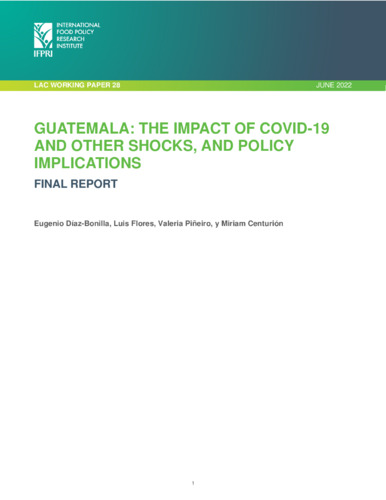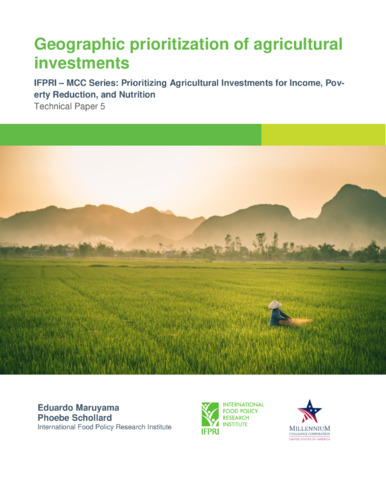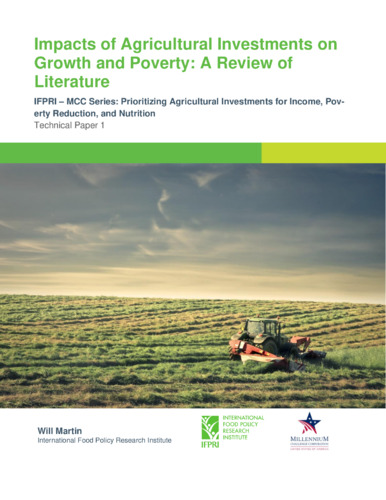This project identifies methods and tools related to the prioritization of agricultural investment taking into account multiple objectives, including income growth, poverty reduction, and improved nutrition. The project has two phases and is designed to assist the Millennium Challenge Corporation (MCC) in its efforts to expand and revitalize its portfolio of investments in the agricultural and agro-industrial sectors with nutritional considerations.
Phase 1 includes nine papers by IFPRI. One paper summarized the evidence for the positive impact on agricultural investment on income and poverty reduction, a second paper on the methods of assessing the impact of agricultural investments, and three papers describing and illustrating tools for prioritization of agricultural investment across commodities, by types of investment, and by region.
The “Nutrition” component includes four papers. The first summarized the evidence on the linkages between child nutrition and economic growth and returns to nutritional investments. The second uses benefit-cost analyses to estimate the returns to selected nutritional investments (studied as part of the Lancet Series) in Africa and Southern Asia. The third empirically examines the determinants of child undernutrition in Africa, focusing on nutritional and dietary outcomes of children in different farming systems. As part of a case study from Burkina Faso, the fourth paper constructs indicators of urbanization using remotely sensed data to empirically examine the link between urbanization and child nutrition.
The results from these nine papers were presented at a series of IFPRI-MCC seminars, at an invited session of the 31st International Conference of Agricultural Economists, at the 2021 conference of the Applied and Agricultural Economics Association, and at a side event of the Borlaug Dialogue.
Phase 2 of the project will provide support for IFPRI and MCC to collaborate in applying the evidence, methods and tools from Phase 1 to inform Compact design and evaluate possible nutrition-sensitive agricultural investments in countries where MCC operates.













